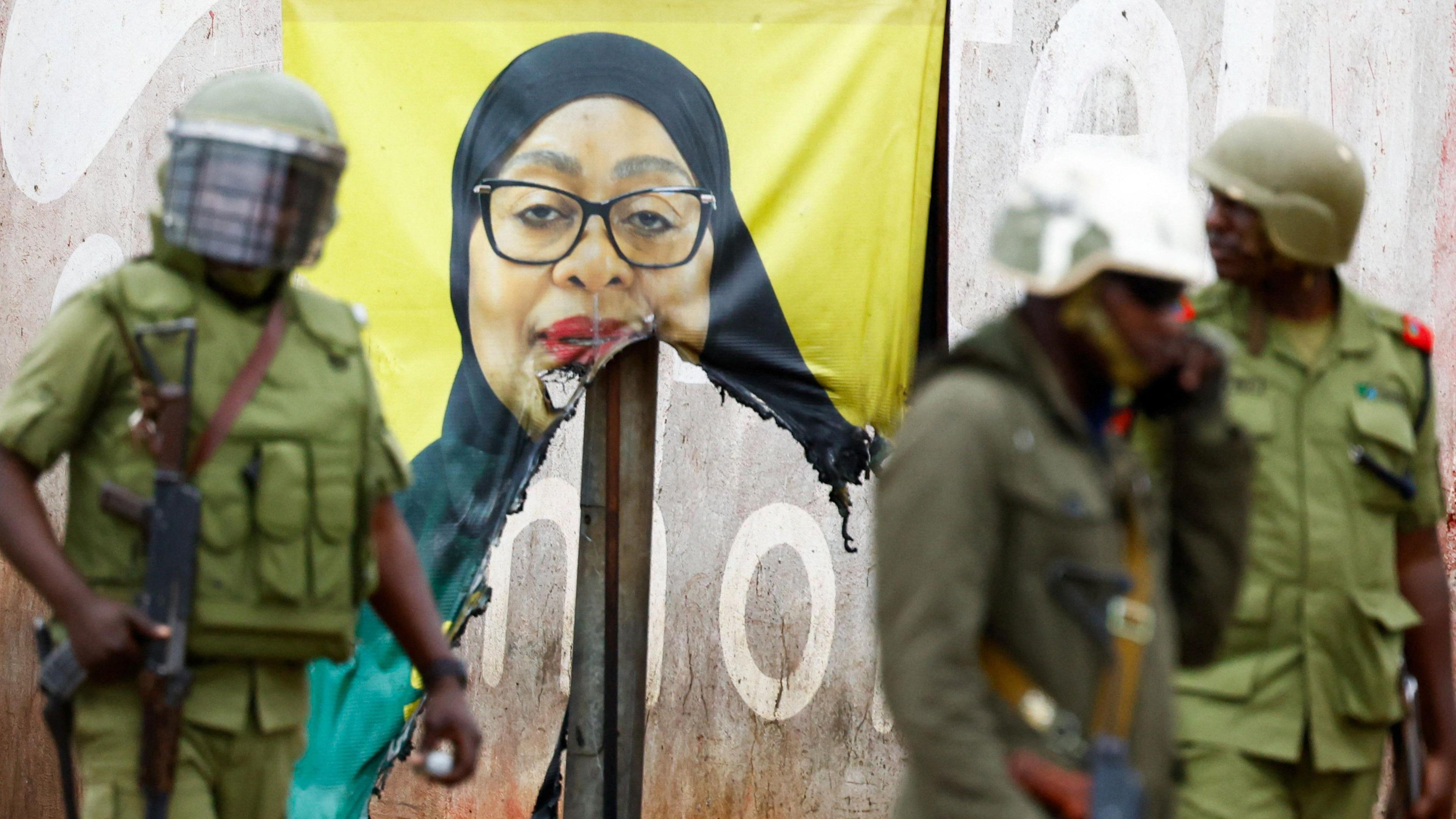Tanzania cancels independence day celebrations after election unrest

President Samia Suluhu Hassan won in a vote that excluded the two main opposition leaders
- Published
Tanzania has cancelled next month's independence day celebrations, with the funds to be instead spent on rebuilding infrastructure damaged in recent election unrest, Prime Minister Mwigulu Nchemba has said.
His announcement comes as the opposition and others have been calling for people to gather on independence day - 9 December - to demonstrate about killings that took place following last month's disputed poll.
The opposition believes hundreds of people died in the crackdown. The government has yet to give a death toll and has set up commission of inquiry.
President Samia Suluhu Hassan won the poll with 98% of the vote, described by the opposition as a "mockery of democracy".
Her key opponents were unable to contest the poll: Tundu Lissu has been in detention on treason charges, which he denies, while Luhaga Mpina's candidacy was rejected on technical grounds.
Election observers have since reported signs that the vote was manipulated and fell short of democratic standards.
An international coalition of lawyers and human rights groups has now formally asked the International Criminal Court (ICC) to investigate President Samia and her government for crimes against humanity allegedly committed during the unrest, including mass killings and the secret disposal of more than 500 bodies.
The 82-page document was formally submitted to the ICC's Office of the Prosecutor on 13 November but was only been made public on Tuesday.
The government had imposed an internet blackout for five days from the 29 October election day and threatened anyone sharing photos from the protests.
The president blamed for shattering Tanzania's aura of stability
- Published9 November
How Tanzania police crushed election protests with lethal force
- Published17 November
Gruesome images and videos of dead Tanzanians have since been widely shared online, with international media verifying some of the graphic footage as authentic.
However, the government has criticised their portrayal as aimed at tarnishing the country's image, insisting the country is safe.
On Sunday, the government spokesman Gerson Msigwa said the commission of inquiry would shed light into what happened. However, groups have raised concern over the independence of the commission.
At least 240 people were charged with treason after the protests, but the president later sought to ease tension and asked prosecutors to "show leniency". Many of those charged have reportedly already been released.
On Monday, while announcing the cancellation of celebrations, Nchemba appealed to Tanzanians to avoid violence and insisted on the importance of political dialogue.
"I urge my fellow Tanzanians to come together and discuss the issues affecting us. Let us not return to what we went through, because the consequences are irreparable," he said.
President Samia came into office in 2021 as Tanzania's first female president following the death of President John Magufuli.
She was initially praised for easing political repression, but the political space has since narrowed.
Additional reporting by Shingai Nyoka
You may also be interested in:
'A bullet went through my skull': Tanzania abduction survivor
- Published3 September
Why Samia's hesitant reforms are fuelling Tanzanian political anger
- Published25 September 2024

Go to BBCAfrica.com, external for more news from the African continent.
Follow us on Twitter @BBCAfrica, external, on Facebook at BBC Africa, external or on Instagram at bbcafrica, external
BBC Africa podcasts
- Attribution